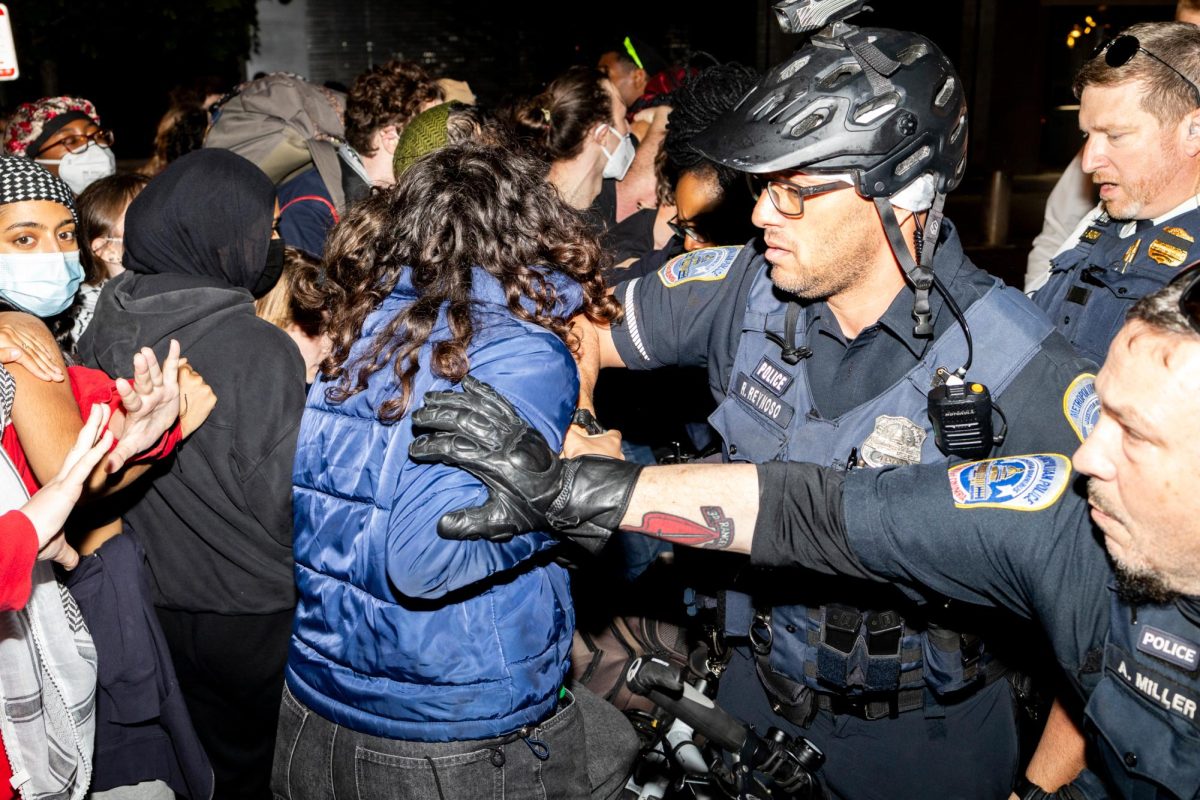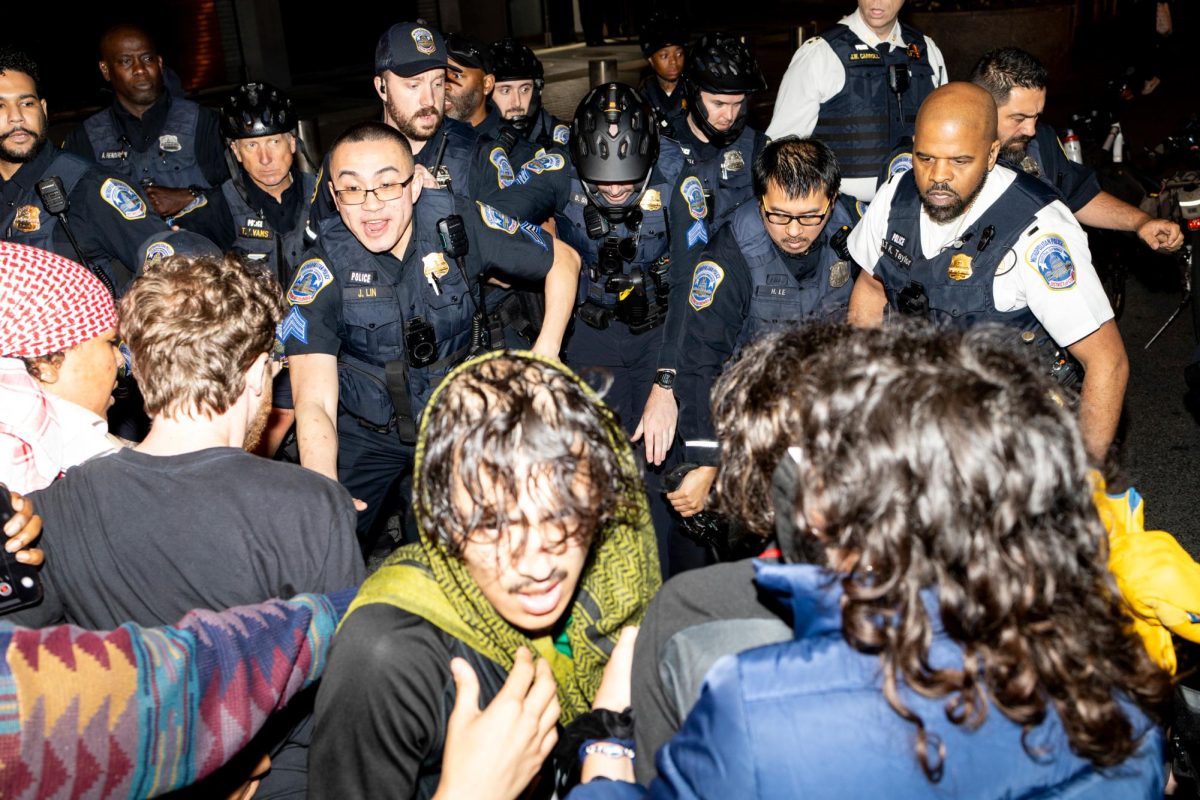The mayor of Jerusalem hopes to revitalize his home city by increasing tourism to 10 million visitors per year, he said Friday morning at the Elliott School of International Affairs.
Nir Barkat – who was elected mayor of Israel’s capital city in 2008 – has been touring the U.S. promoting Jerusalem as a prime city for both tourists and pilgrims, a vital part of his “vision” to return Jerusalem to its previous state of prominence. GW was the last stop on his tour.
“My vision is comprised a lot from the history and the role Jerusalem played 2,000 or 3,000 years ago,” Barkat said. “The role we played – that Jerusalem played – was the center of the world. A destination for pilgrims throughout the world, Jews and non-Jews alike. That is the role that Jerusalem has to play looking forward. I believe that Jerusalem should be opened up for the benefit of the world to enjoy.”
Standing in front of an audience of nearly 250 students and faculty, Barkat explained his plan for revitalizing Jerusalem, which relies heavily on increasing tourism to the region.
“Mayor Bloomberg told me the other day that New York had 48 million tourists in 2008,” Barkat said. “The mayor of Rome told me he had 40 million tourists in 2008. It’s a shame that Jerusalem in 2008 had just a little over 2 million tourists. I put a goal, a long-term goal, for Jerusalem in 20 years from now to be able to cope with 10 million tourists a year. It’s a big step from where we are, but it’s relatively tiny for the potential that Jerusalem has.”
Barkat said he believes that this potential will be one of the key factors in stimulating Jerusalem’s economy.
“Ten million tourists a year translates to 140,000 new jobs in an area where Jerusalem has a huge competitive advantage,” he said. “They say in business, ‘location, location, location.’ We’ve got it, but we have got to utilize that advantage to develop the economy of the city of Jerusalem.”
Barkat noted that fulfilling his vision will be difficult given the current tension that surrounds the city. It would be impossible for Jerusalem to achieve its full potential if it is divided, he said, but he believes bringing tourism to the city could have a positive effect on the situation as a whole.
“Every city in the world where poverty strikes you have riots, you have anger,” he said. “Where there’s prosperity, where people have something to lose, where economy flourishes, people become more moderate, they are more open to each other. In a way, the vision is creating peace from the bottom up.”
Barkat intends to increase the tourism in many ways, including building up the hotel business and working to make Jerusalem’s culture, such as on-location shows, become more global. He hopes such renovations will help the city become “more competitive,” something which Barkat, a former businessman, is confident he can help the city excel in.
“First you have to form the vision, where you want to go, and then you have to build toward that vision,” he said. “There’s a process of getting there.”
The sold-out gathering was part of an event series called The Middle East Policy Forum, which aims to provide students with opportunities to discuss current and emerging issues with policy makers and diplomats in the region.
“It was very successful,” said Edward Gnehm, a professor in the Elliott School and former ambassador to Jordan. “The Middle East Policy Forum intends to bring people to the University, people who are in responsible and important positions, to interface with students, and that’s exactly what we had today.”







